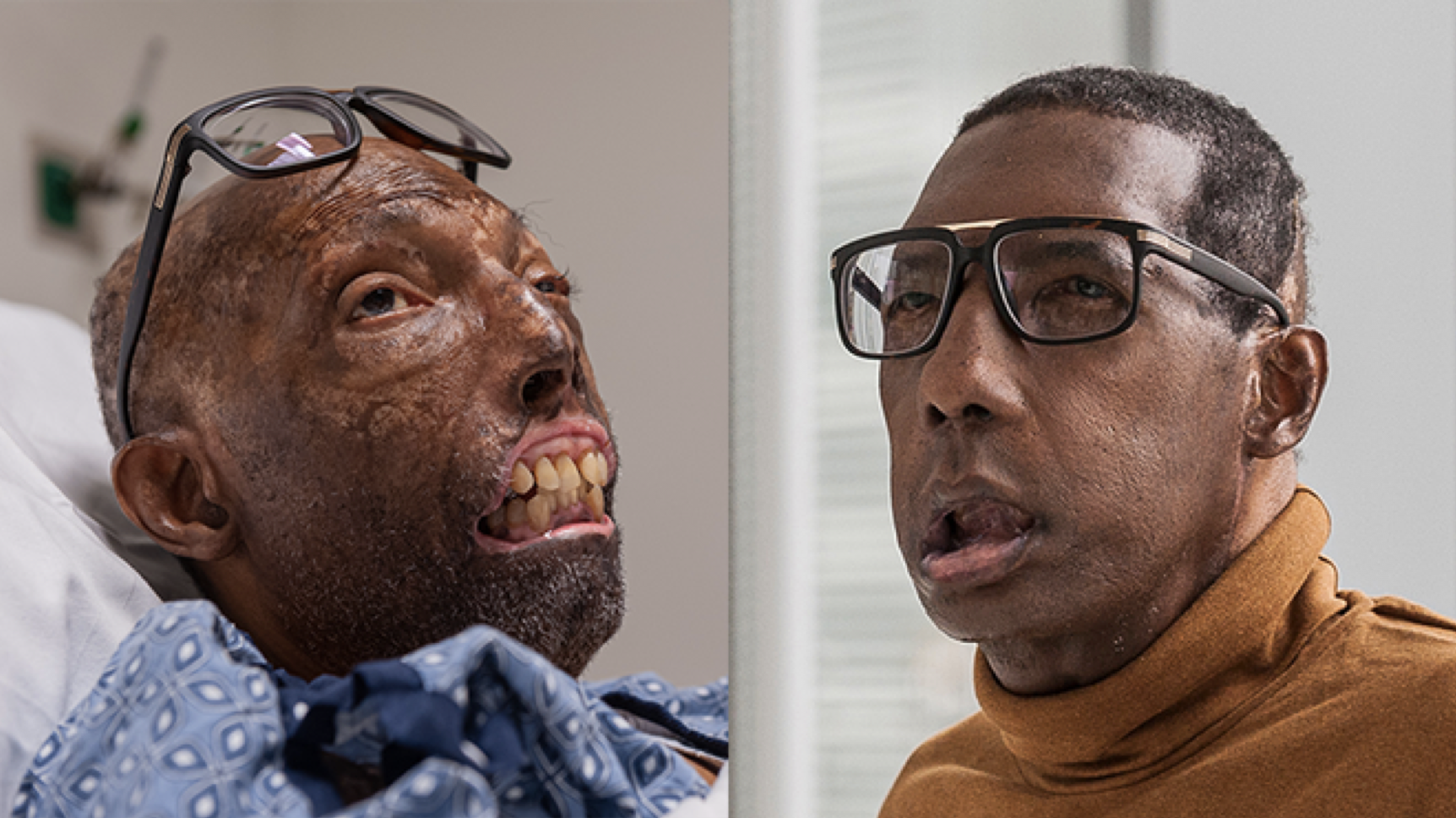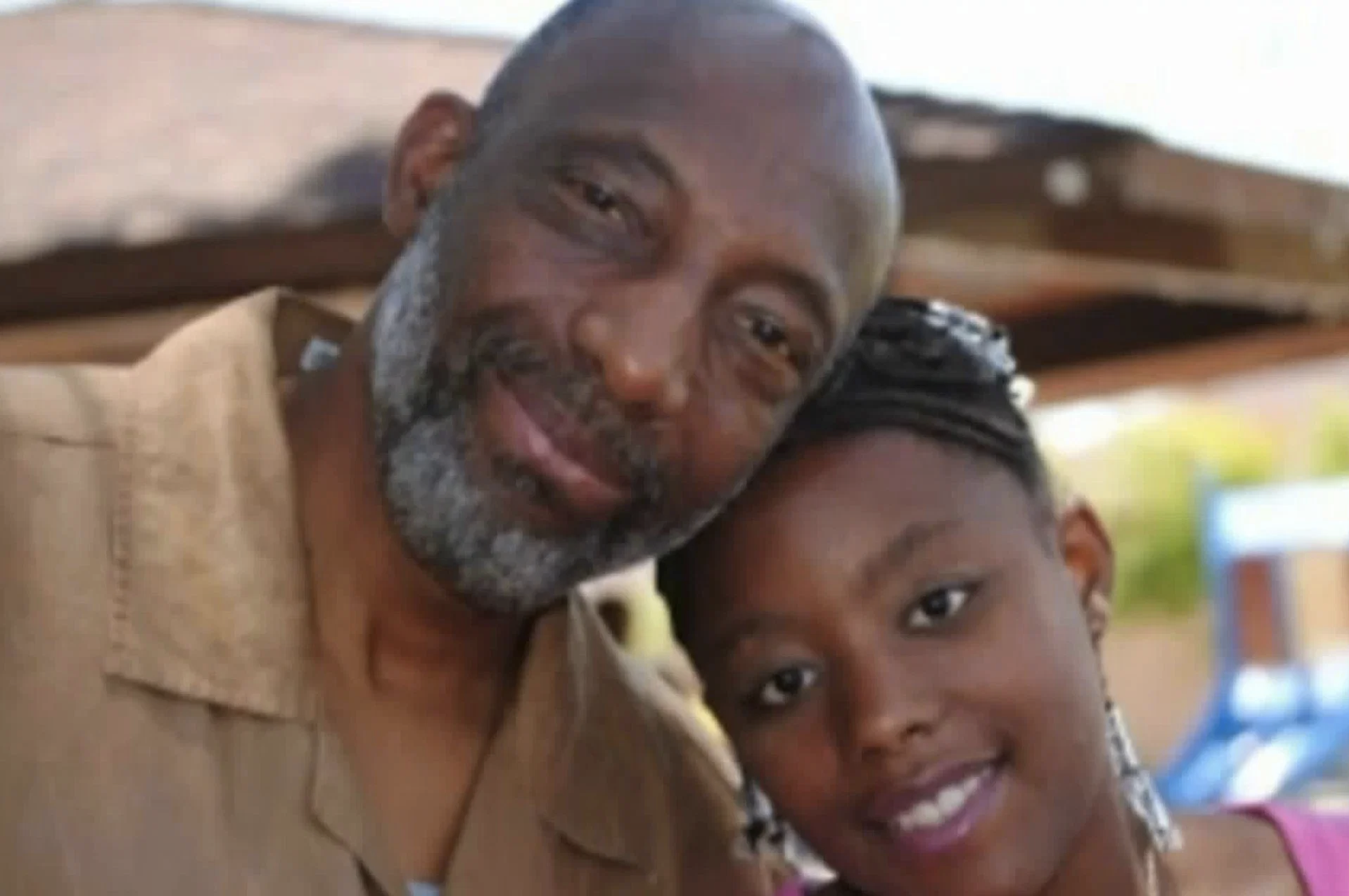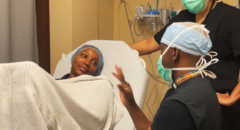
In a 16-hour surgery, Boston doctors just completed the first full face transplant for a black patient, who also happened to be the oldest patient to ever undergo the procedure.
Robert Chelsea was having car trouble one Monday night in August 2013, so he pulled onto the shoulder of a highway outside his home near Long Beach, Calif. Soon after, a drunk driver slammed into his car, and it burst into flames. Chelsea, a sales manager for a rubber-stamp business, was rushed to a hospital with third-degree burns covering almost half his body.
All Chelsea remembers is his car flying into the air, coming down and blowing up — with him inside it.
After being transferred to the University of California Irvine Medical Center, Chelsea spent four months drifting in and out of consciousness as doctors fought to save his life. He had 18 surgeries in that time—mostly skin grafting for his burns, but also abdominal operations to treat serious gastrointestinal complications that had developed as his body struggled to stay alive. Blood pressure medications shunted blood flow to his heart and away from his extremities, leading to tissue death in his lips, nose and fingers. One of his surgeons, Dr. Victor Joe, called him “one of the sickest patients we’ve had.”
Chelsea left UC Irvine in December 2013 with his life—but by the end of his recovery he would lose his lips, the end of his nose, several fingertips and two-thirds of his intestines. His face was severely scarred, and his hands were covered in cadaver skin that matched Chelsea’s skin tone but never quite mimicked its texture; Chelsea called it his “snakeskin.” All told, he would eventually carry the skin of three different people. An organ donor himself before the accident, he had no idea how difficult replacing his skin would prove to be.
He turned down the first face he was offered. It was a fine face, one that could have taken him off the transplant waiting list after just a couple months. But Chelsea–severely disfigured after a catastrophic car accident five years earlier—-was in no hurry. He’d gotten used to tilting his head back so food and water wouldn’t fall out of his nearly lipless mouth. He knew how to respond compassionately to children who stared in shock and fear. The face, offered in May 2018, had belonged to a man with skin that was much fairer than what remained of Chelsea’s—so light that Chelsea, who is African American, couldn’t bear the thought of becoming “a totally different looking person.”

Chelsea’s doctors understood his hesitance. Face transplants in general are rare. Since the first partial one was performed in France in 2005, fewer than 50 have been completed worldwide. A new patient joining the ranks is always noteworthy, but Chelsea’s case carries even more weight than usual. Because he is the first African American to receive a full face transplant, Chelsea’s treatment is expected to have ripple effects that transcend his case. Disparities in the medical system that cause black Americans to die at higher rates than whites of so many things—like heart disease, cancer diabetes and HIV/AIDS—have also produced gaps in organ donation and transplantation. Widespread mistrust of the medical system has made many African Americans wary of tissue donation, contributing to donor shortages; in turn, only 17% of black patients awaiting an organ transplant got one in 2015, compared with about 30% of white patients.
It took more than a year for Chelsea to get a second call—the one that would land him in a bed at Boston’s Brigham and Women’s Hospital, receiving a new face that was…








